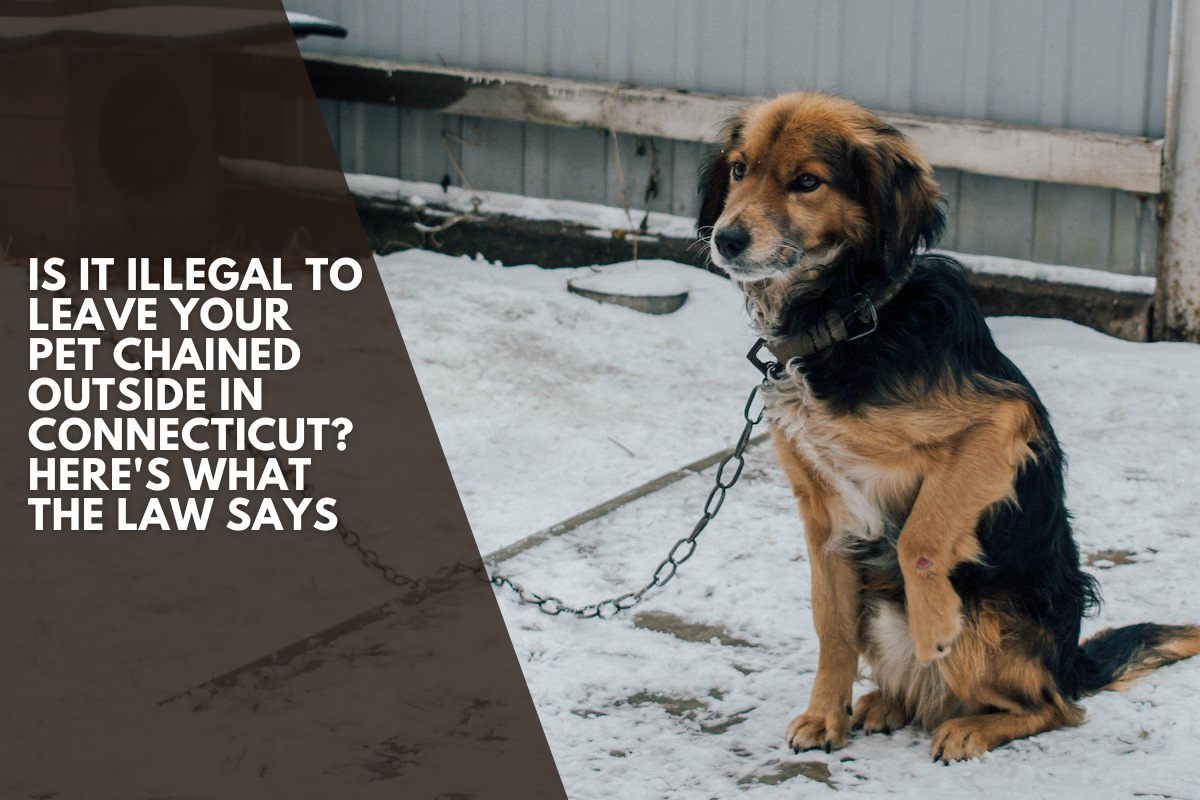Leaving pets chained outdoors is a subject of growing concern and regulation across many states, including Connecticut. Pet owners often wonder whether tethering their animals outside is legal and under what conditions. This article explains Connecticut’s laws on chaining pets outdoors as of 2025 and what pet owners need to know.
Connecticut’s Law on Tethering Dogs
Connecticut law specifically addresses the tethering of dogs through Connecticut General Statutes § 22-350a. According to the statute, it is illegal to tether a dog to any stationary object or mobile device such as a trolley or pulley under conditions that endanger the dog’s health or safety. The law outlines circumstances under which tethering is prohibited, especially focusing on weather conditions and duration.
Restrictions During Adverse Weather
A critical protection established by the law prohibits tethering dogs outdoors during a weather advisory or warning issued by the National Weather Service, or when environmental conditions such as extreme heat, cold, wind, rain, snow, or hail pose a risk to the dog’s welfare.
Under these conditions, dogs may only be tethered for a maximum duration of 15 minutes and must be provided adequate shelter. Prolonged tethering in hazardous weather without shelter or supervision is unlawful.
Limits on Duration and Conditions
Connecticut also restricts the time a dog can be tethered outdoors to prevent neglect or cruelty. Owners must ensure the tethering is reasonable and not for an excessive period, which might cause physical or psychological harm to the animal. The law allows for tethering only as necessary and not as a form of confinement or punishment.
Penalties for Violations
Violations of Connecticut’s tethering laws carry penalties. The first offense typically results in a $100 fine, increasing to $200 for a second offense. For third or subsequent offenses, fines range from $250 to $500. These fines demonstrate the state’s commitment to protecting animal welfare and discouraging irresponsible pet chaining practices.
Additional Protections and Enforcement
This statutory regulation works alongside other provisions against animal cruelty in Connecticut’s general statutes, ensuring comprehensive protection for pets. Local animal control authorities have the power to enforce these laws, investigate complaints, and require owners to remediate tethering violations.
Best Practices for Pet Owners
While occasional, short-term tethering may be legal under Connecticut law, pet owners are encouraged to prioritize their animals’ safety and well-being by:
Providing proper shelter and shade when outdoors.
Avoiding tethering during extreme weather.
Ensuring access to fresh water and food.
Limiting tether time and supervising their pets.
Considering alternatives like fenced yards or indoor containment for longer periods.
These practices not only comply with legal requirements but also promote healthier, happier pets.
Connecticut law regulates and limits the tethering of dogs outdoors, especially to protect them from harsh weather and prolonged confinement. Pet owners in Connecticut must be mindful of these restrictions to avoid penalties and ensure humane treatment of their animals. Understanding these legal standards helps maintain the safety and dignity of pets while fostering responsible ownership practices.
Sources
(https://www.animallaw.info/content/map-state-dog-tethering-laws)
(https://www.cga.ct.gov/2025/rpt/pdf/2025-R-0104.pdf)
(https://woodburyct.org/index.asp?SEC=D0880F65-03E1-485F-B414-1A9FED9263C4&DE=93EF5F15-D43B-4EA2-A625-AB8AF67BDBE2)
(https://www.animallaw.info/topic/table-state-dog-tether-laws)
(https://www.peta.org/issues/animal-companion-issues/ordinances/connecticut/)











